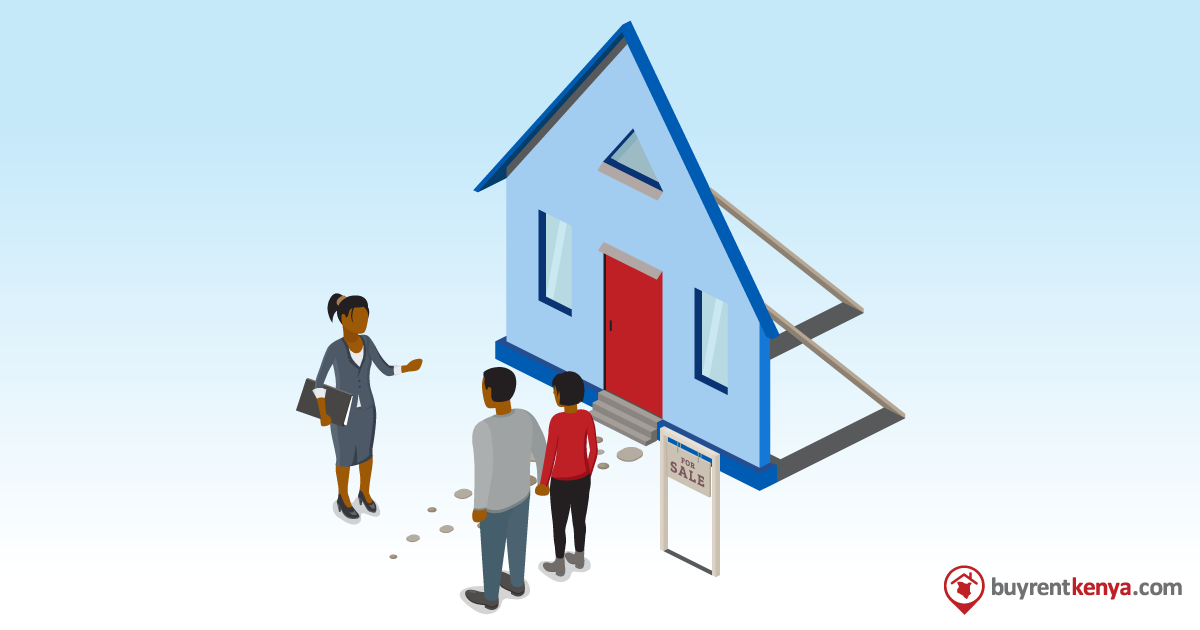Real estate scams are at an all-time high and can affect sellers, buyers, tenants, and landlords. As people’s desire to acquire land or home has grown over time, so have these scams.
Kenya’s ICT Cabinet secretary Joe Mucheru in March this year stated that Kenyans lose up to $120 million annually (equivalent to Kshs 13 billion) to online scammers. The Central Bank of Kenya also warns Kenyans to be wary of online scams that include identity theft, hacking, and pyramid scheme scams. They advise Kenyans to be vigilant and careful about the information they receive requesting any personal information or requests to invest in certain ventures.
Here is a list of the most common real estate scams, how to spot them, and how to stay away from them so that you can feel confident when purchasing or selling any property in Kenya.
Table of Contents
What is a Real Estate Scam?
Scams are fraudulent schemes carried out by dishonest people, organizations, or even businesses in an effort to defraud the public of money or other valuables. Many people think they are too smart to be conned, but con artists are constantly developing new and clever techniques to get what they want.
Real estate scams can take many different forms, including rental and mortgage scams. Sometimes dishonest lenders or brokers spread false information to trick naïve borrowers into giving them money.
Mortgage fraud for example occurs each time information is falsified on a home loan application.
READ ALSO: Land Scams in Kenya and How to Not Get Conned
Types of Real Estate Scams in Kenya

- Fraudulent Property Listings
When you see a property in your area that appeals to you, upon inquiry, the owner says you must pay a fee in order to view the property, that is most likely a fraudulent listing. Scammers often use websites, social media channels, and other platforms where potential buyers may be to post fake listings. The images they use may be from actual listings, but their offers are not.
- Title Deed Scams
This is a typical scam that many people fall for, especially first-time land buyers. If you’ve ever purchased land, you are aware of the level of due diligence you need to obtain an authentic title deed in Kenya. Some sellers take advantage of this to dupe innocent buyers. After purchasing the land, you learn that you and five other people share the same title deed after it is too late. When buying any type of property, thorough due diligence is necessary. To ensure that you are not a victim of a scam, make certain that you use the services of an accredited and qualified lawyer.
READ ALSO: 4 Reasons Why Hiring a Property Advocate is Essential
- Property Investment Scams
The goal of con artists is to lure innocent people into investing in them. After enrolling, investors are forced to purchase soon-to-be-built real estate developments at steep discounts. The organizers vanish with the investors’ money after the purchase, and the investors later learn the property they purchased was not even for that company.
- Rental Scams
The rental industry is no exception to scammers, tenants can be victims as well. Prospective tenants are accustomed to having their personal information prepared for applications, anticipating questions, and having to pay a deposit. You can run into a sketchy “agent” who claims to have a house ready for you to move into, but all he needs is money from you to “keep” it for you.
- Deposit Scams
With the false house pictures they provide in the adverts, the scammers deceive customers by emphasizing that the house is furnished and other distinguishing aspects. After that, they typically vanish with the deposit and first month’s rent they demanded from the victim. This dishonest tactic affects a lot of people. Working with reputable businesses is crucial if you want to safeguard yourself against these and other fraudulent practices.
How to Identify a Real Estate Scammer

Educating yourself on some frequent warning signals is the best approach to safeguard yourself from real estate scams. This is crucial, especially for first-time buyers who may not have much prior knowledge of the procedure.
The following red flags could point to a real estate scam:
- Lack of Adequate Documentation
If the seller of the home you want to buy doesn’t have the required documentation, this is a significant warning sign. Some con artists will claim to deliver the customer proper papers, such as a deed, but only after receiving payment or bank details.
- Pressure to Take Quick Action
Home purchasers are frequently coerced by real estate con artists to transfer money or personal information immediately. To convince you that you might miss out on the house if you don’t act right now, they might appeal to your sense of scarcity.
- Unattainable Promises
If a seller makes you a promise that appears unrealistic, it probably is. This is a popular strategy in fraud involving mortgage relief. Scammers frequently claim to make changes to your loan in exchange for an upfront payment when a homeowner is on the verge of default.
The moment you feel compelled to act, this should serve as a red flag. Your real estate agent will present an offer as part of the normal house-purchasing process. You’ll pay a small deposit toward the down payment and closing costs as soon as the seller accepts your offer.
How to Avoid Real Estate Scams
Avoiding real estate scams can be difficult because con artists frequently use cutting-edge technology and engage digitally with their victims. However, it’s crucial to be cautious while making real estate purchases.
You can avoid real estate scams by using the following strategies:
- Don’t Fall for Unrealistic Prices: Scammers are aware that people love cheap things and use this to bait unsuspecting people. Ensure you conduct market research to find out the market rate of the property you would like to purchase.
- Use Official and Verified Real Estate Platforms, such as BuyRentKenya.
- Pay Only After Visiting the Property: After talking to the agent, ensure you go physically to see the property. Avoid paying any fees before viewing the property.
- Sign a Lease Contract: If you ever end up in court, your lease agreement will help protect you. When it is time for you to move out, it will also help you get your security deposit. Look for the owner’s name in the lease agreement to confirm that the home is being rented out legally. Ask for proof if anyone says they are working on behalf of the landlord.
- Always Conduct Due Diligence: This may include verifying the title deed, working with a lawyer to ensure all documentation is legal and analyzing the property to ensure it is in good condition.
How to Report a Real Estate Scam

If you believe that you are a victim of real estate fraud, you can follow the steps below
- If you revealed your bank account information, change your pin or access information right away
- In the event of mortgage fraud, contact your mortgage service provider.
- Inform the police about the real estate scam.
FAQ
The best way to avoid being conned or scammed is being well informed. Before making any transaction, ensure that you understand the market and have professionals, such as lawyers and real estate pros, guiding you.
One of the best ways to buy genuine land is by buying from reputable companies. With that said, you need to perform your own due diligence on the property. Here is an article that would help you: https://www.buyrentkenya.com/discover/due-diligence-the-first-step-of-property-transaction
Due diligence in property transactions refers to the process of conducting a comprehensive investigation and analysis of a property before entering into a purchase or investment agreement. The key objective of due diligence with respect to property is to thoroughly inspect every relevant aspect of a property. To ensure the seller is in compliance with any restrictions, and the terms and conditions the property is held. A simple search is not enough.



